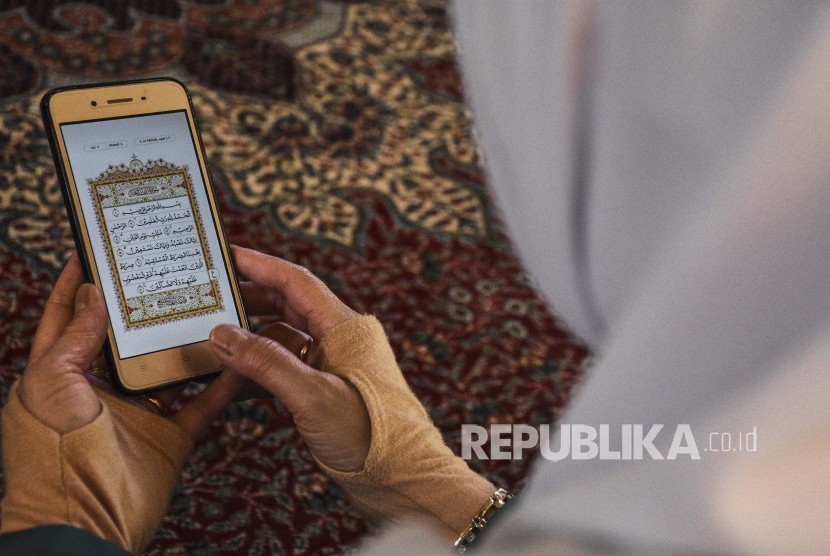REPUBLIKA.CO.ID, JAKARTA --- Digital Quran is now widely used by Indonesian Muslims. Especially for Millennials, various digital Quran application platforms that can be downloaded on smartphones are making it easier to read the Quran anywhere. But how does civility treat digital?
The preacher who is also the head of the Institute of Luhur Civilization (LPL) Rakhmad Zailani Kiki explained that the custom of reading the digital Quran is the same as the custom of reading the Quran mushaf.
Habib Uthman ibn Yahya in his book Iqdul Juman explains that the first custom for those who read the Quran is fardhu ain, that is, he is obliged to read the Quran either mushaf or digitally with tajwid. So for a person who reads the Quran without Tajwid he becomes a wicked person.
The second practice is to read the digital Quran seriously and its Sunnah in a state of ablution, face the Qibla, bow your head as a form of respect for the Quran, and do not sit with your back and do not sit down like the behavior of a person who is takabur raises himself.
Thirdly, a person who reads the digital Quran is obliged to humble himself and behave meekly. So do not be shy and do not like to feel superior to others in matters of reading or reading the Qur'an in the opposite voice of the other reader.
The fourth Adab, the one who reads the digital Quran and the one who listens to the digital Quran is sad, even though he does not know the meaning. The fifth rule is that one must read the digital Quran aloud.
“The sixth practice is that a person who reads the digital Qur'an is obliged to practice every kind of worship whose obligation is stated in the Qur'an, such as prayer, fasting, worshiping aloud, and he has also abstained from any prohibitions of Allah (Allah) that are contained in the Qur'an, such as riya, takabur, spitefulness, swearing, blaming one another, reproaching people, eating illegal goods, etc.,” Kiki.
He further explained the seventh custom, sunah for a person reading the digital Quran to mix his voice with a song or langgam. The intonation must obey or come from a cleric who is of Arab origin and not according to music or other songs (such as Javanese songs or langgam).
The eighth custom, the law is Sunnah to pray and ask for mercy when a verse is recited that mentions mercy, ask for heaven if the verse read is related to heaven, and ask to be kept away from the fire of hell if the verse recited is related to hell. Ask to be kept away from punishment when the verse that mentions torment is recited. Also read the tasbih when reading the verse about the tasbih.
The ninth custom, when Innallah wa malaikatahu is read to the end, is dedicated to reciting shalawat to the Prophet Muhammad.
The tenth custom is to read the digital Quran slowly.
The eleventh custom is for readers of the digital Quran to takbir at the end of each surah, from surah ad-Dhuha to the end of the Quran surah.
The twelfth custom, the Sunnah law is to perform prostration tilawah after reading or listening to a verse related to the Sunnah of prostration.
“The disadvantage of the digital Quran is that generally its applications or software are not stored in the Koran's mobile phones or special devices, mixed with other files or applications that are even less appropriate and less favorable in terms of their respect and glory. Therefore, the owner or user of the digital Koran must protect the HP or its employees from inappropriate applications, files or software,” he said.


